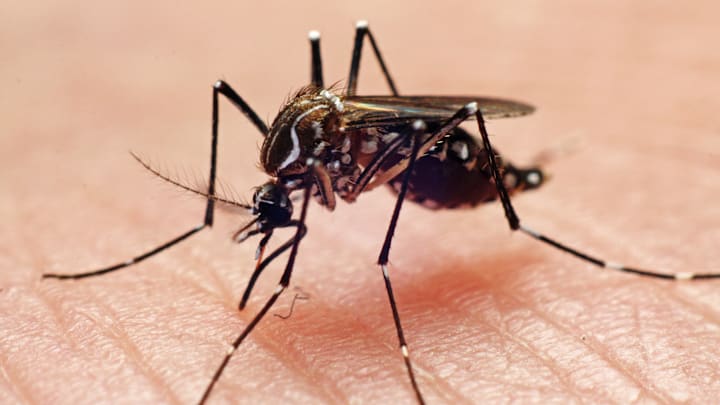For some, heading outdoors in warm weather can be stressful. Sitting on a patio and minding their own business, they seem to attract mosquitoes at a rate that far outpaces that of the people sitting next to them. Even insect repellent may not ward off bites for these unfortunates.
What turns people into mosquito buffets? Science may finally know.
According to a new study by researchers at Rockefeller University in New York and published in the journal Cell, mosquitoes appear to be attracted to humans with high levels of carboxylic acids on their skin. The compound is produced in sebum, an oily substance emitted by sebaceous glands in the skin. If someone has a high level of carboxylic acid, mosquitoes appear to be able to detect it, and are thus drawn to their target like a pig to a truffle.
How did scientists find this out? Their study involved taking samples of a person’s skin secretions by having them wear a nylon stocking on their arm and then cutting the material into samples. The swatches were then placed in a box before releasing the mosquitoes. Time and again, the insects (Aedes aegypti) opted for the samples with high levels of carboxylic acids.
While it’s possible for humans to detect carboxylic acid—in high concentrations it can smell like dirty feet—mosquitoes are uniquely sensitive to it. Nothing the subjects in the study did, from changing hygiene products to showering, seemed to alter their appeal. Only one human subject with high levels of carboxylic acids seemed uninteresting to the mosquitoes, which may indicate that some humans could also possess a natural repellent, though this wasn’t the focus of the study.
It’s possible taking a shower just before heading outdoors may make someone less appetizing to a mosquito, but scientists say that carboxylic acids may be just one component that makes humans tasty to them. Isolating this one, however, could lead to more effective mosquito repellents in the future.
[h/t The Washington Post]
